"Unlearning" Entrepreneurship
With much curiosity, wanting to discover what is not yet seen
Dreams Persist
A lot of young people want to do something different, leave a mark and be remembered. Some of us have dreams, some make it happen, and some don’t, with the same old excuse: “There are no economic resources to make it.” For some it makes sense, because, who would be able to create a business without resources? But neither is it fundamentally ideal to not do it. A lot of us fear failure, or worse, economic loss. In every gaze, in the eyes and in the depths of thoughts and hearts of young people, there is an incredible idea, one that can improve and surpass other business, other ideas that. We believe we can change the world, as did Thomas Alva Edison, inventor of the phonograph, and Alexander Graham Bell, inventor of the telephone. For many people they were crazy and impossible ideas, but they never stopped believing. They had conviction in themselves and what they were capable of, and thanks to them, it is now easy for us to see at night, it is easier to communicate with our loved ones in any part of the country or the world. And in another example from my country... Grandmothers, with their wisdom and knowledge, guided by the ajaw (creator) made possible with their hands the tortillas for daily consumption of their families. Even though they are not recognized and we don’t hear their names all of the time, they, too, were great entrepreneurs. For hundreds and thousands of years they discovered and implemented the remedies of many illnesses with medicinal plants, and many more ideas that came from them, using resources from their own lands.
Who said the best entrepreneurship is traditional?
There is an ancient entrepreneurship model, and from what I remember, it is still being used in the 21st century. There are enterprises that have been successful with that knowledge and way of learning, but several haven’t, and could not scale up. We have it ingrained in our minds that to be successful in starting a business we must have the idea, then the economic, human and material resources, next the production, and finally, the act of selling it. But, what happens when you don’t reach the sale of your product? What are you going to do with it? It’s a hard question, isn’t it? You can begin without a genius idea of what you want to do. Sometimes you only need to let your imagination, thoughts, and vision fly, and see opportunities in the problems you identify. What if you sell a product before production? That’s a great idea! I had never thought or imagined in that way (well, before the course), but it is the most profitable way. Or, if you want to do it the normal way, you can think and create something, not yet in the market; sometimes it can sound like an unrealistic idea, but the point is to be different. It was incredible to listen to the vibrant ideas of youth to improve not only the economic stability of their family, but also that of their community. What has impacted me the most is to think on a business with a low environmental impact, even to look for alternatives to reduce an environmental problem, such as a bio-gas/natural gas soap and detergent enterprise that does not pollute water, a program to rescue Mayan language or artisanal bread, promoting country textiles or touristic sites. Ideas like taking advantage of technology to earn money; satisfying the client needs with a good delivery service in a country that does not have it; offering a transportation service to students; and thinking about people’s health in production and sale of organic dairy products are several ideas that came up during the week. Taking this entrepreneurship course has changed our minds in many ways, for example: Stop thinking about what I want to provide and start thinking about what the client needs, and in this way, I can seek to satisfy their needs with my products or services, or, like many, pursue a profitable business, without thinking how to make it profitable. Now we have the essential knowledge to be entrepreneurs, and we will apply this in our projects. Each person in the course has taken his or her own path. We still have a long way to go, but it is in us, which paths to choose to reach long distances in a short time.
-Glenda Xulú, SERES Ambassador
“The impact that [this course] had in me was to break traditional business models, and getting to know this business model is very appealing.” -Course participant

